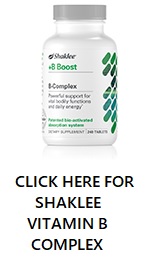 Vitamin B2, also known as Riboflavin, and sometimes referred to as Vitamin G, is a member of the B-complex family.
Vitamin B2, also known as Riboflavin, and sometimes referred to as Vitamin G, is a member of the B-complex family.
Fairly common, small amounts of this water soluble vitamin are found in practically every type of plant and animal tissue. Not so common, however, is the fact that Vitamin B2 is responsible for several important bodily functions including assisting with the metabolization process of proteins, fats and carbohydrates.
The body needs Vitamin B2, or riboflavin. What does it need it for? It needs it to maintain the mucous membranes that are located throughout the digestive tract. It is is necessary for proper formation of red blood cells. It helps the body produce antibodies. It is an important part of the processes involved with cell respiration and growth. This readily available vitamin benefits skin, hair, finger and toenails and the connective tissues.
As part of the B-complex family, Vitamin B2 is necessary for the production of Vitamin B3, or Niacin, and it helps the body absorb Vitamin B6. During periods of rapid development, such as during puberty, Vitamin B2 helps ensure that development occurs normally.
Sources of Vitamin B2
The good news is that people who eat a nutritionally-balanced diet generally provide their bodies with sufficient levels of this vitamin simply because small quantities are found in most plant and animal tissues.
Milk, eggs and dairy products such as yogurt and cheese are excellent sources of Vitamin B2 as are leafy green vegetables, avocado, broccoli and asparagus. Whole and enriched grains and cereals are other good sources as are nuts, legumes, soybeans and mushrooms. Fruits, organ meats (liver, kidney and the heart) and fish contain ample amounts of Vitamin B2 as well.
More good news is, that since it is a water soluble vitamin, there are no real risks involved with excessive consumption. That which the body does not use will pass in the urine. When too much is present, the urine will appear more yellow than normal, but that will pass (no pun intended).
Note, however, that heat and light can destroy Riboflavin, so, whenever possible, purchase milk contained in something other than a glass bottle.
The recommended daily intake of Vitamin B2 is as follows: For adult men, 1.3 mg. Adult females should get at least 1.1 mg daily. Women who are pregnant should get more, 1.4 mg, and women who are breastfeeding should try to get even more, 1.6mg daily.
Vitamin B2 Deficiency
Although a good diet is a good way to get what you need of this important vitamin, there sometimes exists external conditions and lifestyle choices which can trigger a Vitamin B2 deficiency. Among these are excessive consumption of alcohol, tobacco, refined sugars and caffeine. Stress, whether internal or from outside sources, as well as and excessive exercise can also deplete stores of this vitamin.
Several symptoms can be indicative of a Riboflavin deficiency.
Among these are an overall feeling of weakness, swelling or soreness in the throat and/or tongue, cracks or sores in the corners of the mouth, known as Angular Cheilits, irritated skin or other skin conditions, and anemia. Eyes can be sensitive to light or can water excessively. Problems with digestion and with insomnia have been known to occur as well as a feeling of lightheadedness. Mental responses may slow and growth may be adversely affected.
It's likely there is a link between a Vitamin B2 deficiency and the onset of rheumatoid arthritis, as well.



